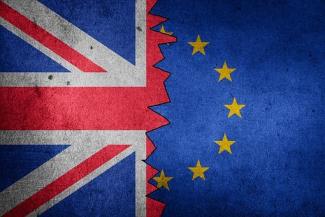Intellectual Property
What is Intellectual Property?
The law on intellectual property protects your rights as a creator or owner of original works and products. This can take many forms, including inventions, a written manuscript, a piece of software, a piece of music or a painting, to name but a few examples. It also covers confidential information.
There are various forms of intellectual property which can be the subject of litigation, including:
- Copyright
- Trademarks
- Patents
- Design Rights
- Trade Secrets
Copyright
Copyright protects original literary, dramatic, musical and artistic works, including photographs, recordings, software, films and broadcasts. It gives the creator of the work exclusive rights to use, copy, perform, distribute or adapt the protected work. Protection is automatic, i.e. it does not have to be applied for in any way, and typically lasts for the creator's lifetime plus a further 70 years after they have died.
Trademarks
Trademarks protect brands, logos, slogans, and other distinctive signs that identify the products and services of a particular business. Trademarks can be registered but also unregistered if they have acquired sufficient goodwill i.e. being used in trade and associated with a particular business for a period of time.
Patents
Patents protect brand new inventions and provide inventors with exclusive rights to prevent others from making, using, or selling their inventions without permission. Patents must be applied for and the invention must be novel, inventive, and capable of industrial application.
Design Rights
Design rights protect the visual appearance of products including their shape, configuration, patterns and ornamentation. There are both registered and unregistered design rights. Registered designs provide stronger protection for up to 25 years, while unregistered designs offer more limited protection for a shorter period.
Trade Secrets
Trade secrets protect confidential business information that provides a competitive advantage, such as manufacturing processes, commercial methods and formulas. Trade secrets are generally protected through confidentiality agreements and security measures rather than any form of official registration.
How We Can Help
At Samuels Solicitors, we can advise you deal with various issues that can arise relating to your intellectual property, including:
- trademark registrations;
- breaches of confidential information;
- licensing agreements;
- “passing off” issues;
- issues under the Copyright, Designs and Patents Act 1988;
- remedies for the enforcement of intellectual property rights;
- issues concerning confidential information, breaches, position of employees, remedies and defences; and
- disputes arising under the Patent Act 1977.
Trademarks, copyright and computer related copyright issues have become increasing widespread in recent years, as companies invest more in developing brands and other material covered by this increasingly technical subject. Increasing importance is now placed on international protection of intellectual property rights.
Has someone infringed your intellectual property?
If someone is using something that you have created, without your permission, then it is likely that your intellectual property rights have been infringed. Perhaps you have been accused unfairly of infringing some else's intellectual property rights.
We will be happy to discuss the options available to you in a free initial consultation.
Contact us by email or telephone today to find out how we can help.
Latest Intellectual Property News
-
Are you wondering what will happen to intellectual property rights after Brexit? Read our analysis here.


